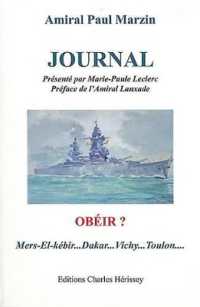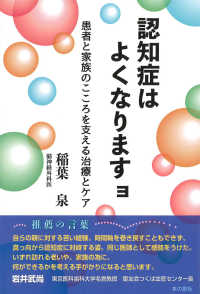- ホーム
- > 洋書
- > 英文書
- > Folklore / Mythology
Full Description
This book provides the first ever in-depth analysis of Fariseos, a folk-Catholic tradition performed during Holy Week in the small town of San Pedro de la Cueva located in the state of Sonora, Mexico.
Utilizing folklore studies and performance theory, Guillermo Núñez Noriega delves deep into the meaning of this rich cultural tradition. Translated into English for the first time, this in-depth study explores the religious and socio-cultural paradoxes and counternarratives surrounding the festivities, with particular emphasis on expressions of masculinity and the community's sense of morality. Through interviews, witness testimony, and sophisticated theoretical framing, this book reveals the complexity behind the scenes of this under studied folk religious tradition.
Contents
List of Figures
Acknowledgements
Preface
Introduction
1. Gender, Morals, and Folklore
2. Holy Week
3. The Geographical Context: San Pedro de la Cueva, Sonora Mexico
4. How Was the Folklore of the Fariseos Studied?
5. Context, Text, and Texture
6. The Performance as a Complex Symbolic Structure
7. Public Expression of Forbidden Impulses and Paradoxes of the Fariseo Performance
8. The Fariseo Performance and the Social Sphere: Trends and Challenges
9. Conclusions: The Multiple Functions of Folklore
References
About the Author and Editor








